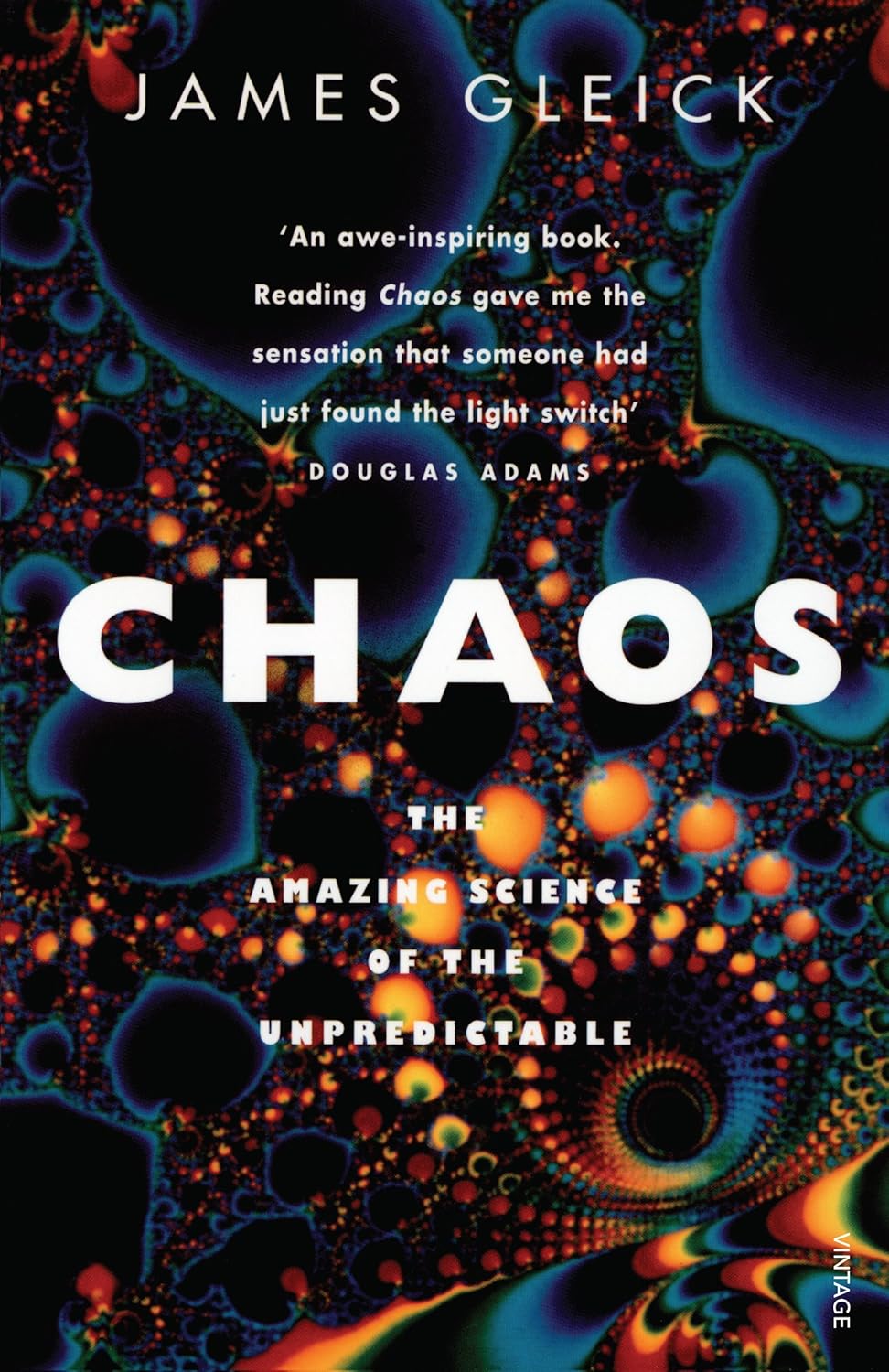About this deal
Chaos, a book by James Gleick, first introduced the concept and early development of the chaos theory to the public. Because of this, I found the book frustrating - both too complex to really grasp, and too superficial to really provide useful insight into the concept. If you want to cultivate a general appreciation of the foundations of material reality then this is a great place to start. The book could have benefited from a lecture style presentation, with clear chapter introductions and summaries, so that I could see how it all fit together, not to mention what year he was currently talking about.
The last chapter was incomprehensible hippie mysticism, then the book just ended leaving me wondering what the whole point was. Gleick gives an unorganized overview some fun mathematical concepts like fractals, strange attractors, and chaos theory. Much of what the first generation of chaos scientists did is incredibly easy to demonstrate with a laptop computer today--but most of these chaos pioneers were working with handheld calculators, mainframe computers with dump terminals and limited and unreliable access for something so peripheral to the institution's perceived mission, computers whose only output device was a plotter.I realised how much I was enjoying the book when I found myself twiddling my thumbs one lunch hour at work and decided to plot a simple bifurcation chart!
Now of course in real life, things are much difficult, in many cases there are parameters which appear in both sides of the equation, making it second degree, a famous example being friction in the pendulum problem, which we disregard so often to keep things simple. To calculate the overall star rating and percentage breakdown by star, we don’t use a simple average.
It describes the Mandelbrot set, Julia sets, and Lorenz attractors without using complicated mathematics. Along the way are the fascinating stories of the rebellious scientists that had to challenge the establishment and who finally gained acceptance for their rigorous work. While some may say this makes it a less informative book, for me this made it one of the most intriguing non-fiction books I have read.
Every scientist, mathematician, philosopher, and person who cares about truth and reality needs to read this book and shift their thinking. I was never put off by the 'technical' words, thoroughly absorbed the diagrams and as for the coloured designs. I did study a bit of Physics in a past life, but you don't need to have a background in science to get something out of this book.
It's another journalist writing about mathematics, though this one anticipated the Wikipedia Age by two decades. It is interesting to contemplate how much of the themes of this book have migrated into the modern cultural consciousness. And this ultimately was the real achievement of Gleick in writing Chaos - He manages to convey to us that this is the first foray of science into the realm of art - not just of explaining art but of being art. That is we have a problem, which was successfully translated into an equation where the outputs are obtained by multiplying the inputs by a certain factor, while keeping everything in the first degree.
You can change your choices at any time by visiting Cookie preferences, as described in the Cookie notice. For me, the real impact is that it has changed the way I look at the ordinary everyday world - the leaves, the trees, the pebbles, the pattern on the peels of an orange - everything is strangely magnified and beautiful now. It's a case study in political factions and egos, sometimes cooperation and always wonder at seeing the world in a new way. As much about the history of chaos theory and the scientists who pioneered it as the science itself.For new doctoral students, there were no mentors in chaos theory, no jobs, no journals devoted to chaos theory. For an elegant and comprehensive discussion of complexity theory, read Stephen Wolfram's ground-breaking work A NEW KIND OF SCIENCE published a decade ago and still making the news. Towards the very end you get some very tantalising pictures that make you imagine what you might be able to do with just a bit more scientific detail. Beloit Mandelbrot, an IBM mathematician working with an equation that produces fractals, arrives to give a presentation to an economics class and finds "his" equation already on the board; the patterns he's found in pure math also apply in economics, the reproductive rates and numbers of animal populations, and countless other places.
 Great Deal
Great Deal 